Sol Calero
La carta, por favorCrèvecœur, 9 rue des Cascades, Paris
“La carta, por favor” evokes a restaurant, a “social” place par excellence and anchored in popular culture. After “Bienvenidos a nuevo estilo “(2014), evoking a hair and beauty salon, or “Casa de Cambio”, evoking a currency exchange office, how do you envision this new environment?
The starting point was an invitation from Saâdane Afif to create an actual, (possibly permanent) canteen or restaurant for Bergen Assembly in Norway next year. I had been wanting to take my time going deeper into a project for a while now, so my idea was to use my next few exhibitions to show the process behind designing a restaurant and all of its elements. “La carta, por favor” is like the first chapter in this series.
I wanted to start the show by addressing my first thoughts about restaurants in this particular moment. When you first enter the exhibition space the visitor is confronted with a very familiar scene in Paris since the pandemic started: a wall made out of a pile of 50 bistro chairs. The chairs have been borrowed from a local restaurant, Rôtisserie Coquin, that has been closed since November 2020. This first image of the chairs reminds us of the absence of an important part of the daily life of the city. It also made me think of the work of Doris Salcedo and her installation “1550 wooden chairs” produced for the 8th International Istanbul Biennial, where the artist stacked approximately 1550 chairs between two city buildings to address the history of migration and displacement in Istanbul. In the case of my show, it’s a representation of a local displacement where people have been asked to empty the streets and retreat in their houses, removing the quintessential social spaces they’re used to.
For the show, the 50 chairs work not only as a reflection of the current situation, but I’m also using the chairs as walls in the space to obscure something that’s happening behind-the-scenes; the ideas that are “cooking” inside of the space. Almost like how the kitchen of most restaurants hides an important aspect of the place, the cooking, the food.
These chairs might not stay in the space for the whole duration of the show because we agreed to borrow them only until the restaurant is able to reopen. If at the moment the chairs represent the solitude or the emptiness of a restaurant, they also have this potential to leave, and to open up a kind of hopeful space. The hope of the open restaurant.
Once you have walked past the walls of chairs, you will find all the works displayed in what are supposed to be street menus, boards and tables. The idea was to create almost a “mood board” for designing a restaurant, so in this case, we are designing a space as a bridge to another space. The “menu” boards you see in the space hold the drawings, alluding that in this empty restaurant the guests are welcome to select a dish that would let them escape to a new landscape. The connection between the works and the future restaurant is still quite abstract, so perhaps some works are designs for table-cloths or placemats, plates, booths, upholstery, murals, interior architecture, furniture. But nothing is fixed. It’s a collection of open possibilities.
The painting acts in your work as a polysemic object, a reminder of the ambiguous relation of the art to the power since centuries (wrote Dorothée Dupuis in a text of 2019 which was dedicated to you). The power is moreover to be understood in the broad sense: political, social, economic, cultural, geographical power… In this new exhibition, painting is everywhere, inspired, solar, virtuoso but it seems at the same time desacralized, on paper, placed horizontally, installed on menus: what does this say about the relationship you have with painting?
I constantly move between installation and painting in my practice. I can’t think of painting without thinking about the space, or the other way around. They both belong to the same place. For example, you can find things in an installation that you later see in a painting. I also like to think that my paintings act as containers of the conceptual aspect of the work apart from the formal aspect of the painting itself. When you see a painting alone, on a white wall, or in the middle of an installation, the painting as an object belongs to the same idea as everything that surrounds it.
I really enjoy the process of painting on paper because you can arrive at a place where it almost feels like your hand is working as fast as your brain. We learn how to sketch on paper, so the instinct when working on it is to let yourself loose and be quite free but at the same time you have to be concrete. With watercolors you don’t have many opportunities to make corrections, so you have to project the idea in a very concrete moment so I feel this is a very important process because it allows you to think fast and make quick but important decisions. I guess in a way you can think of this show as a huge sketch pad that allows you to move in a inbetween space behind the process of building an idea.
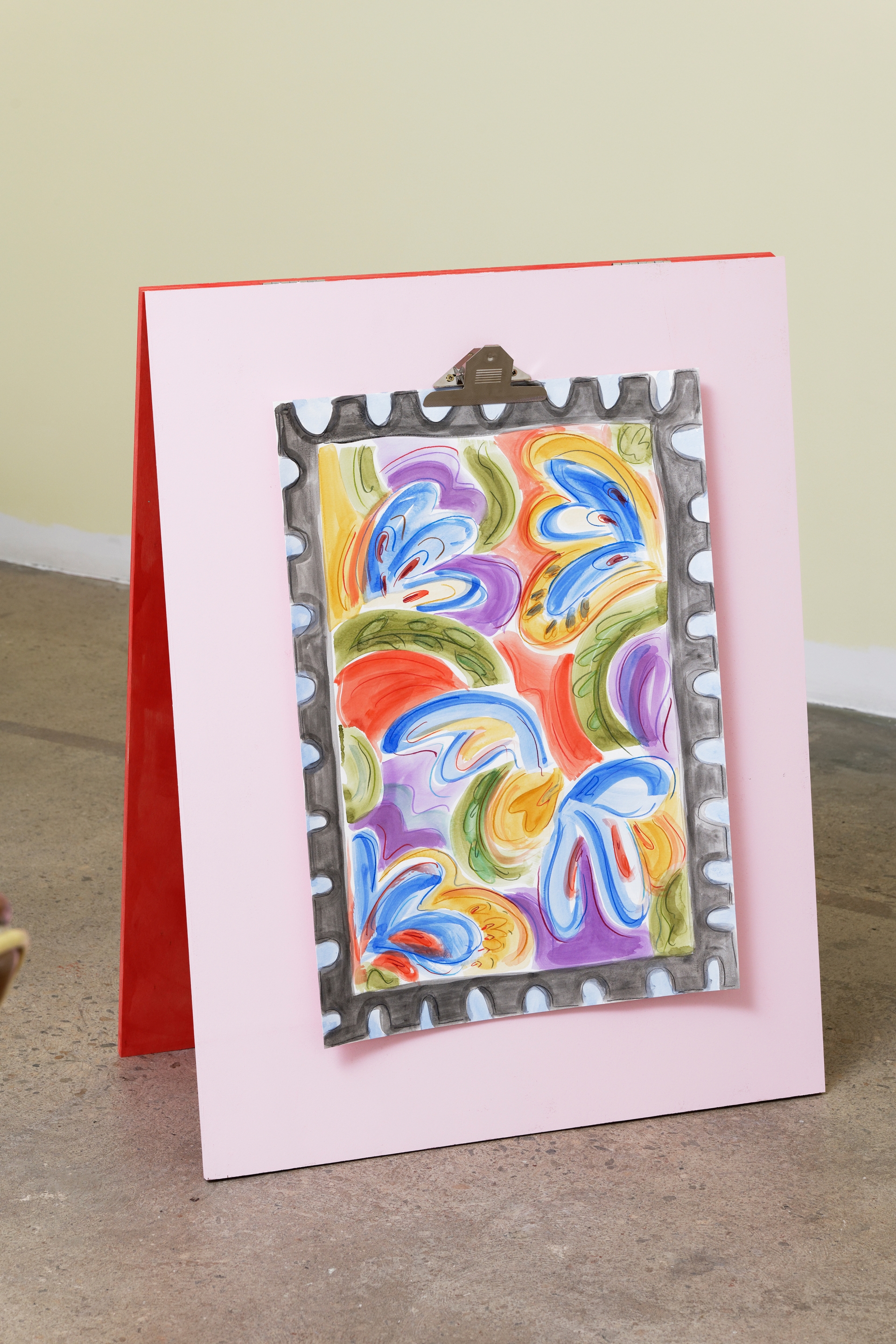
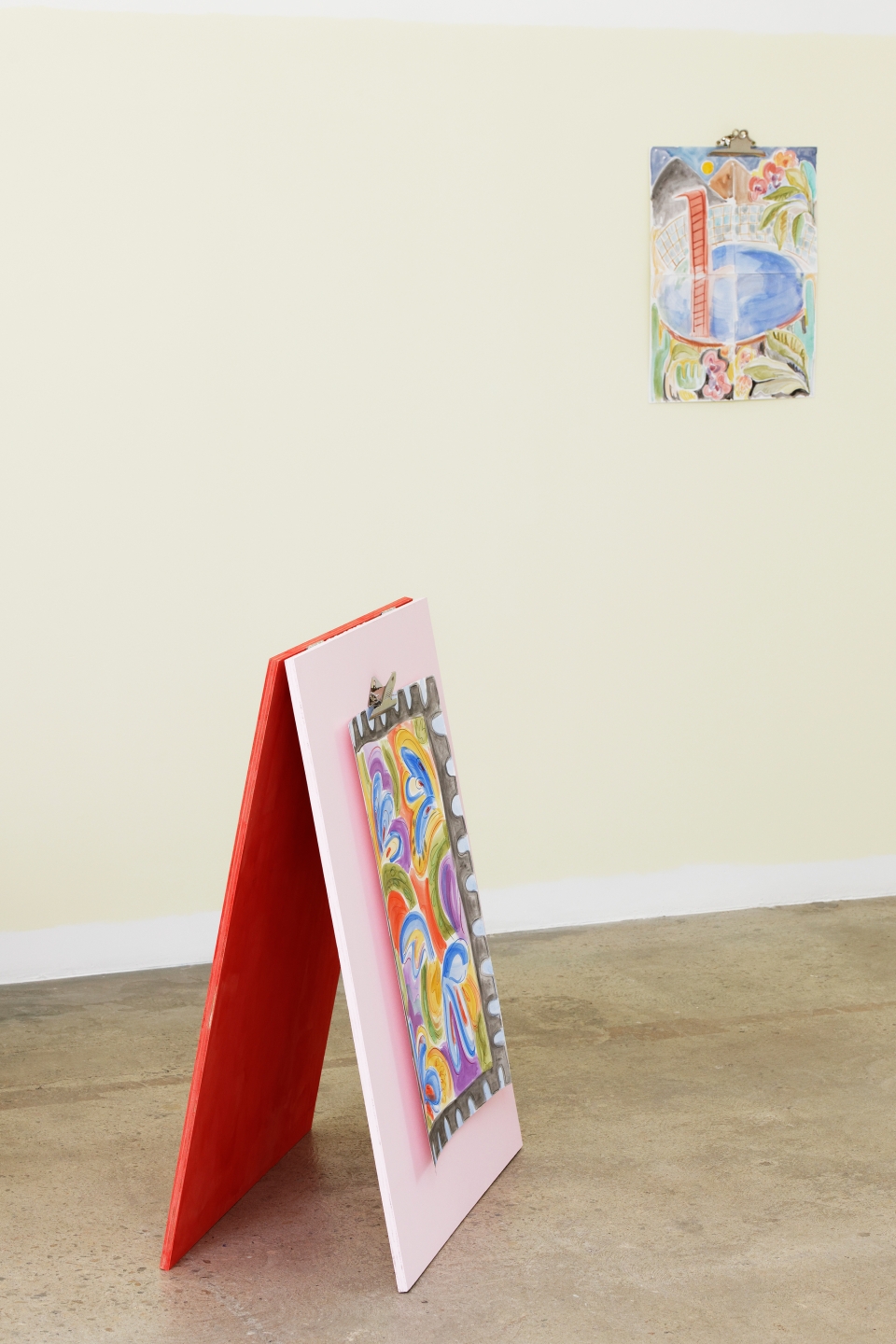
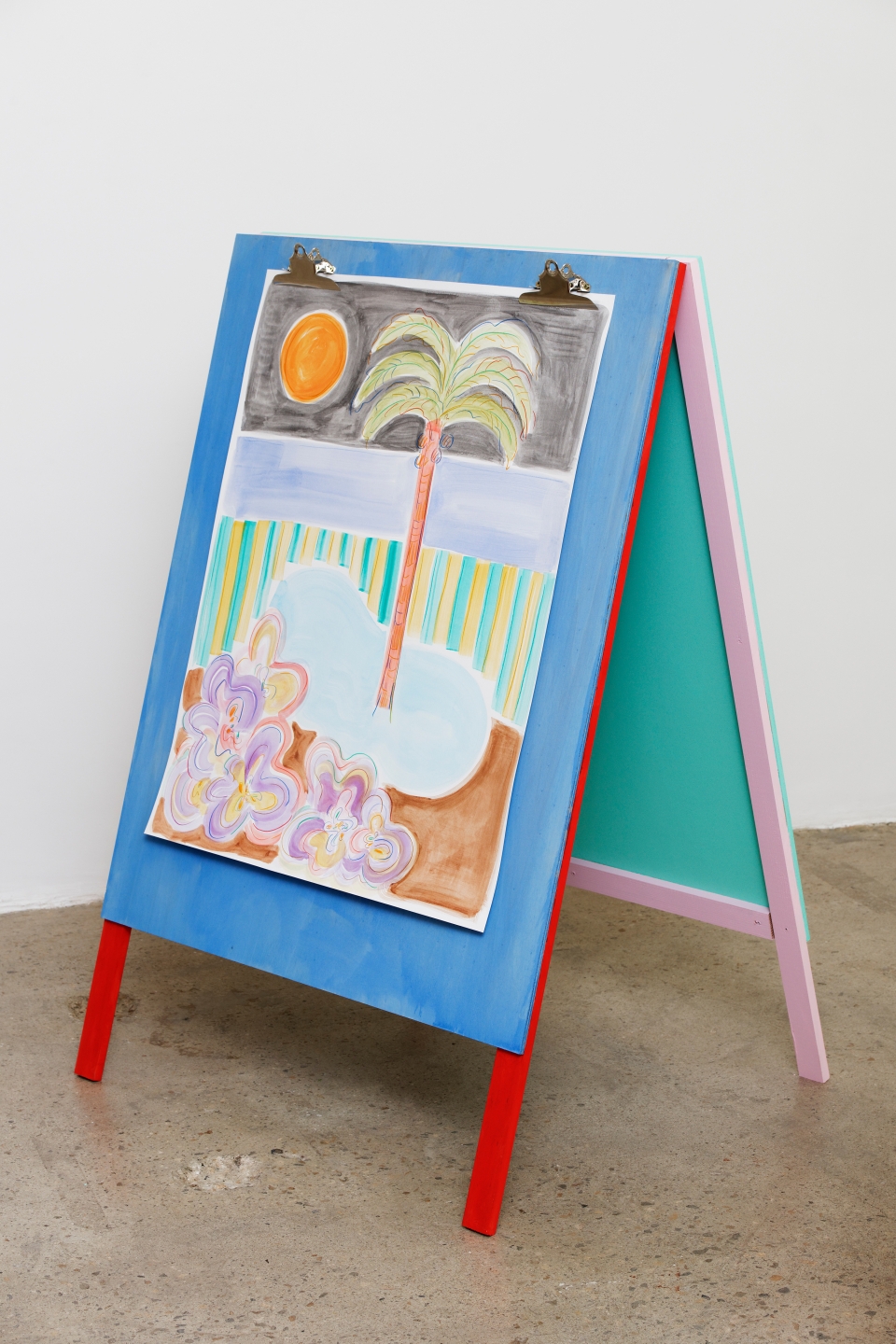
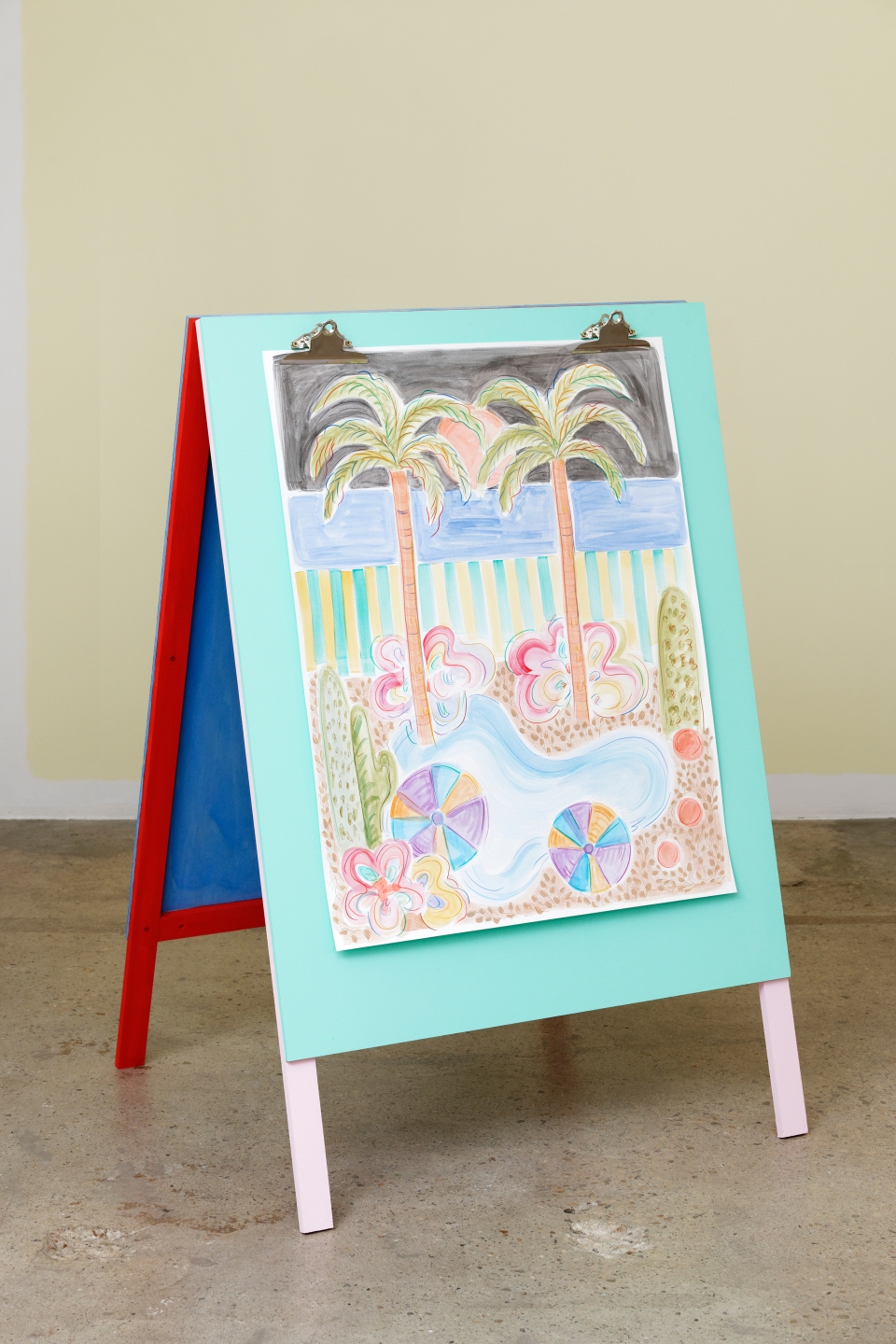
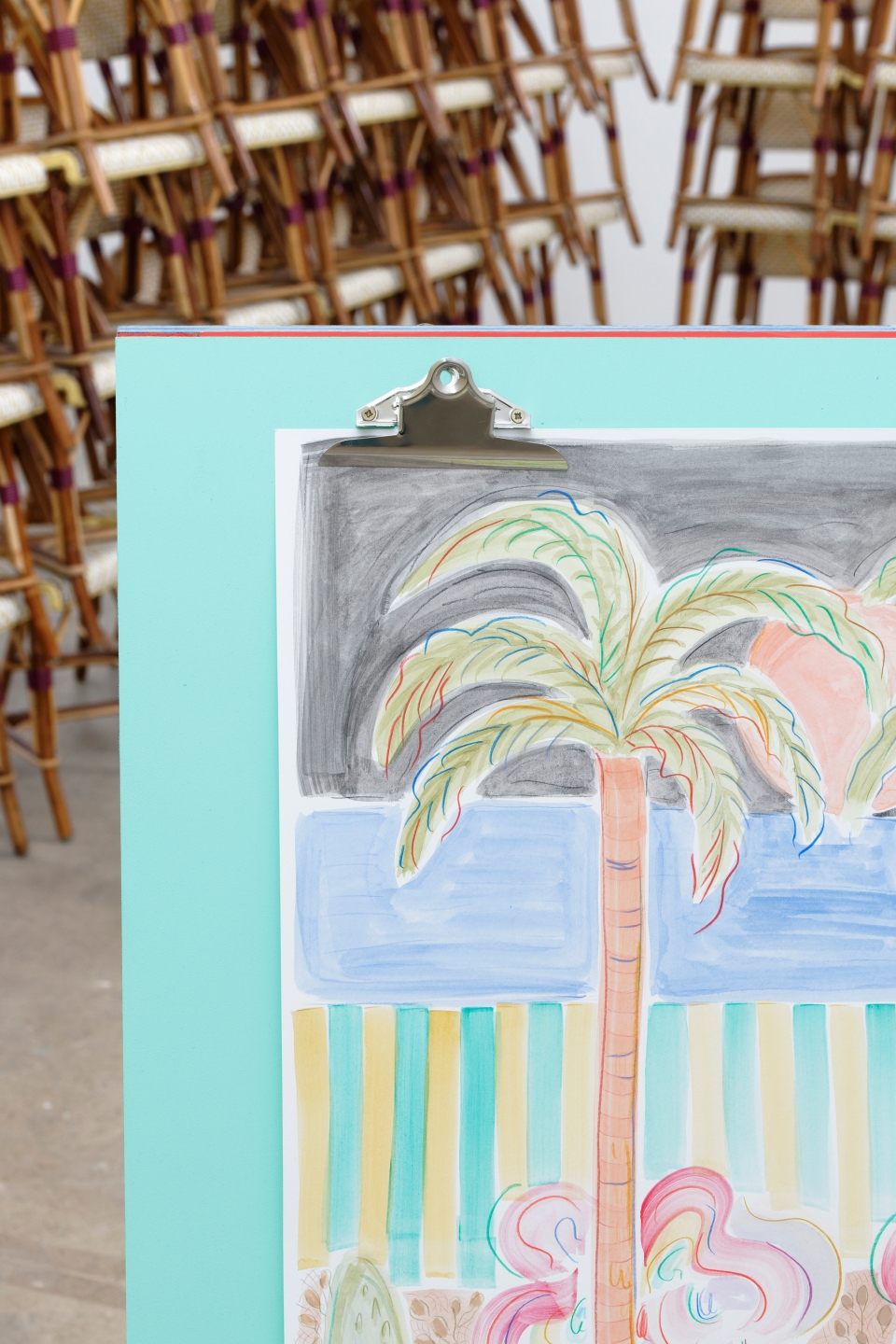
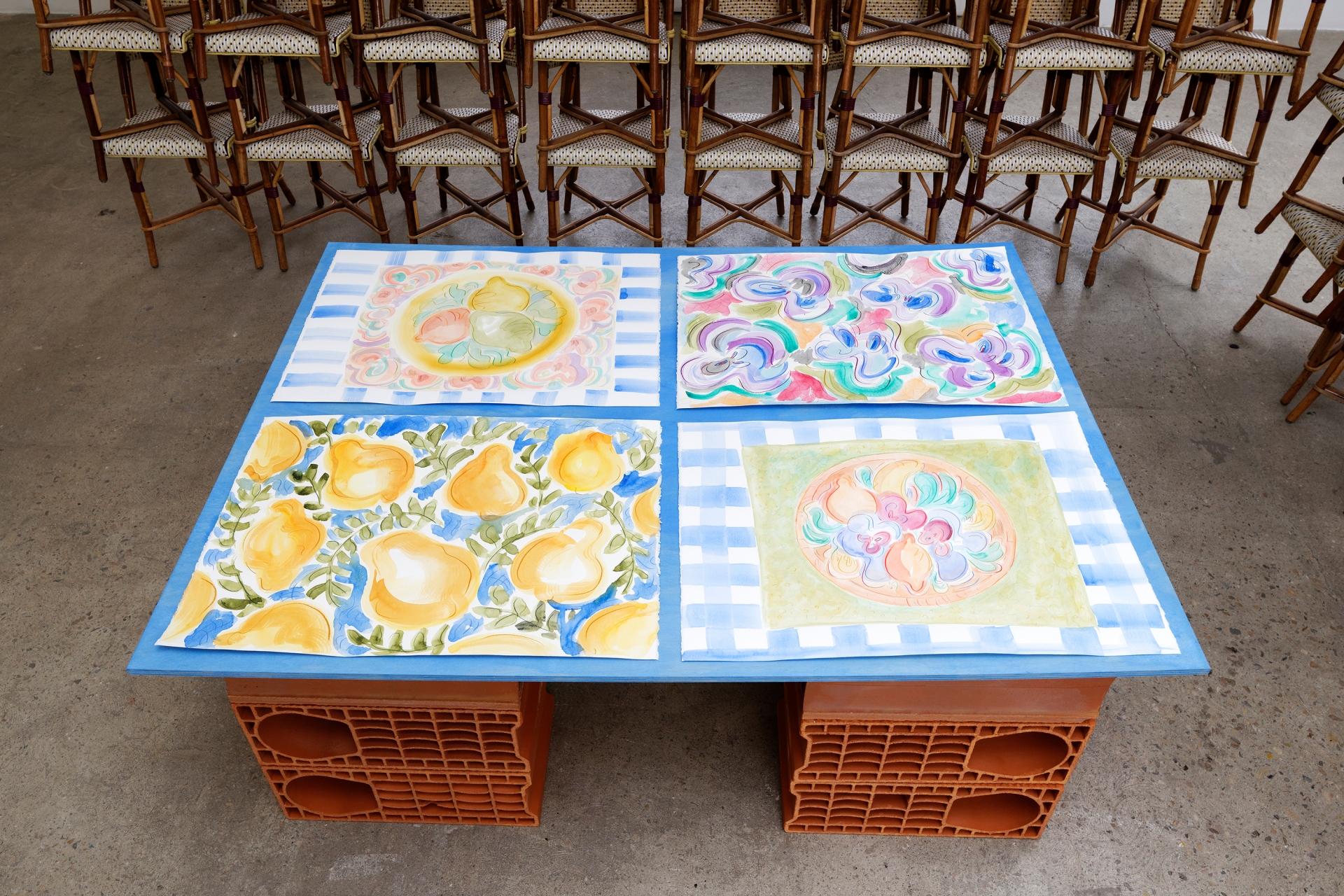
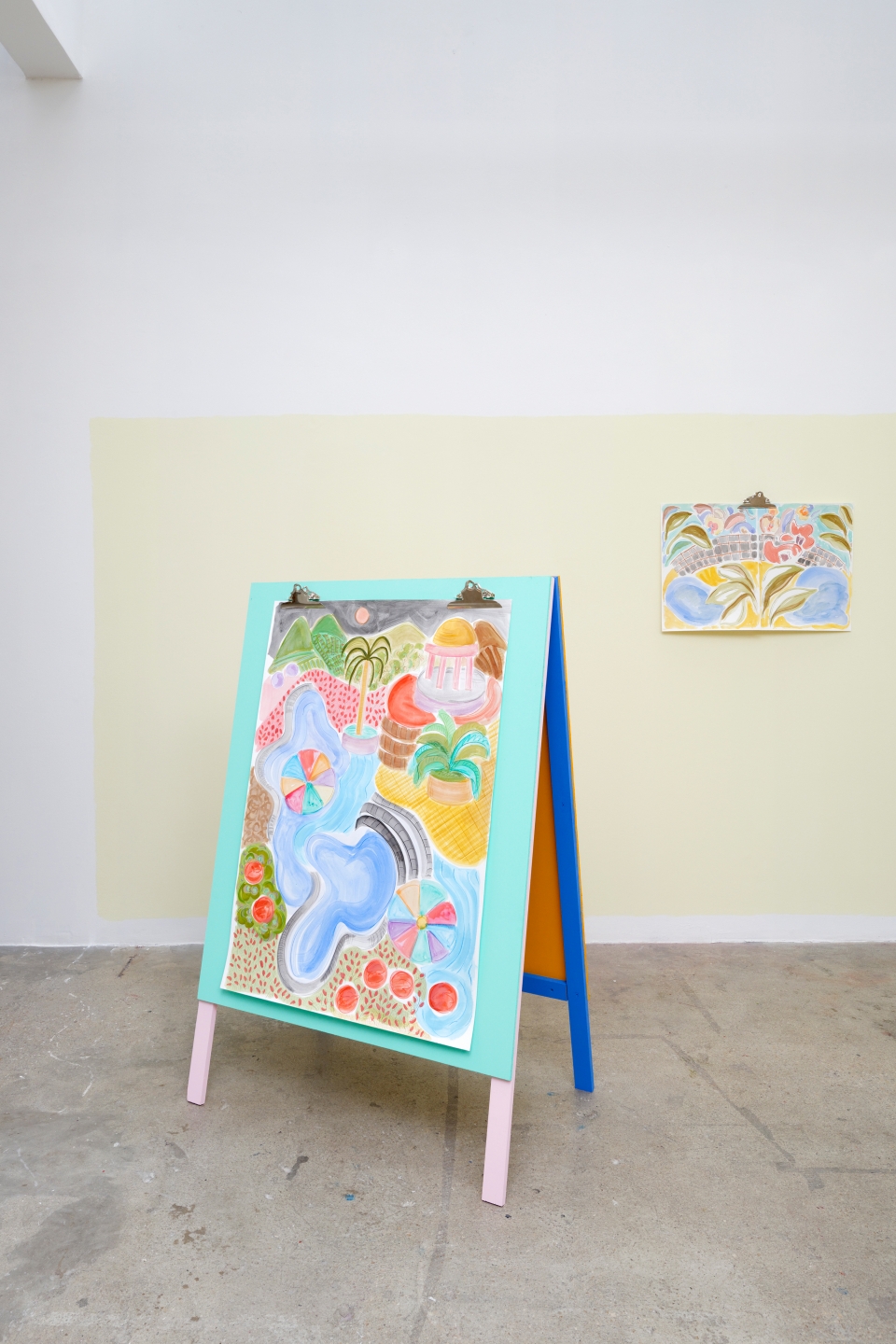
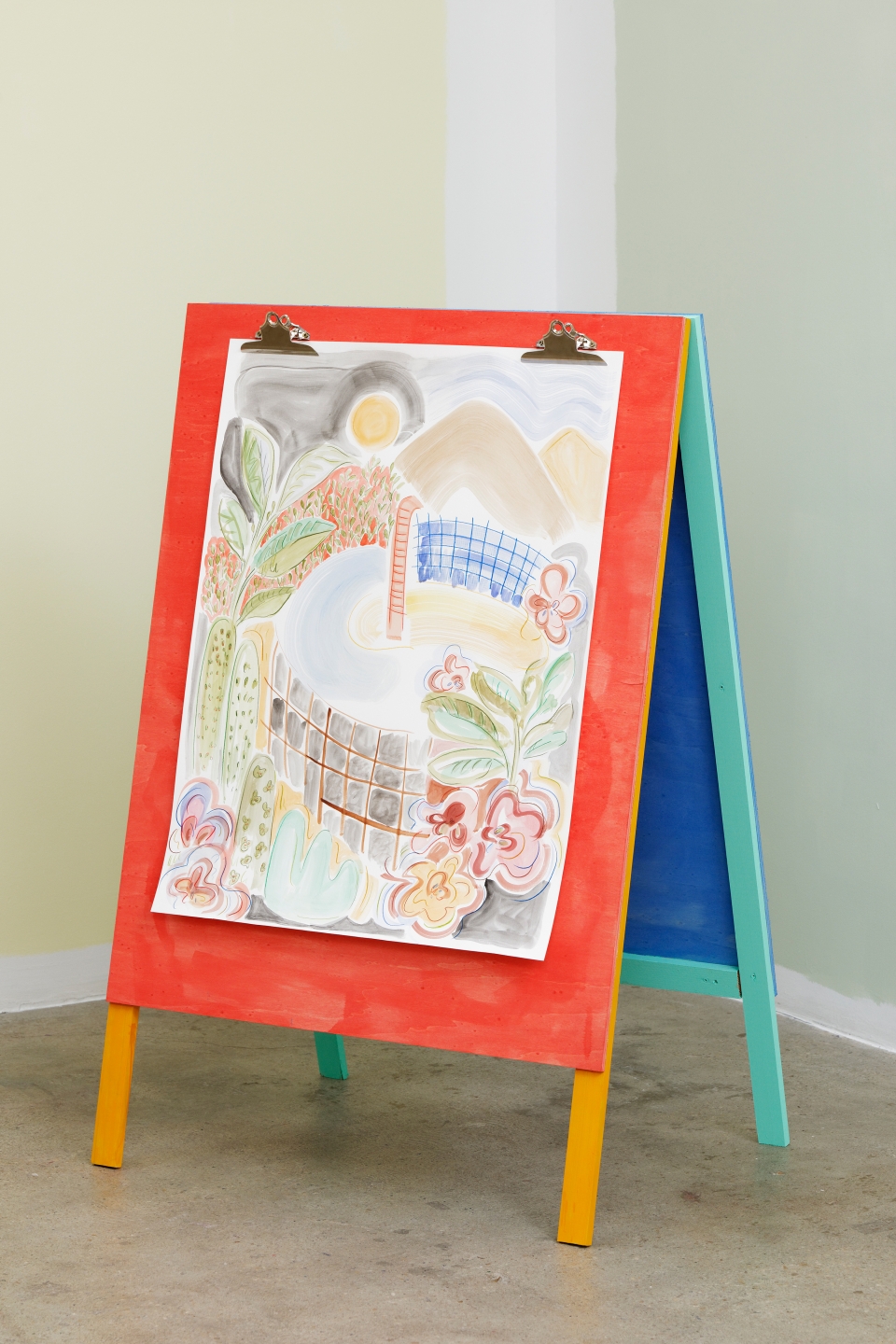
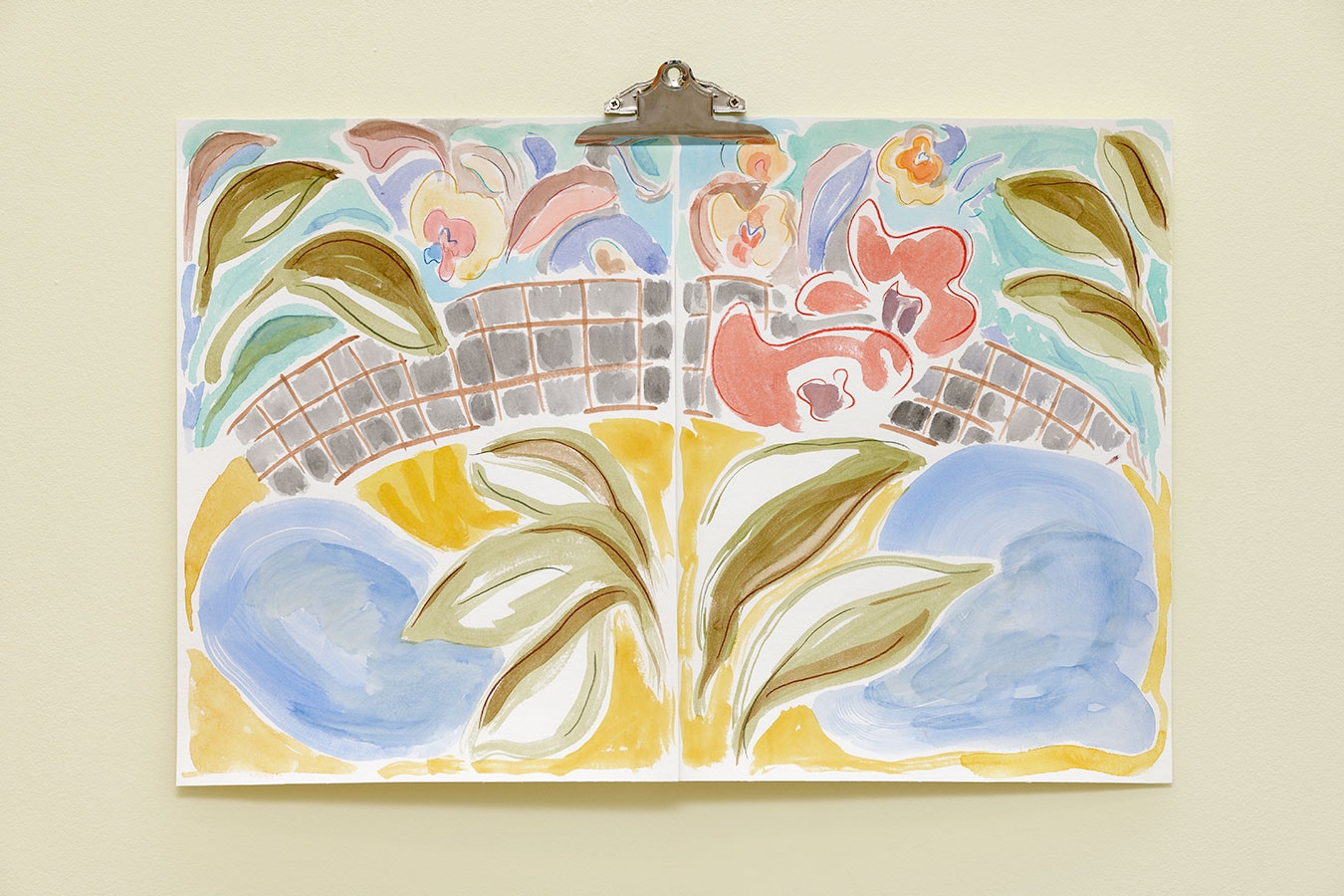
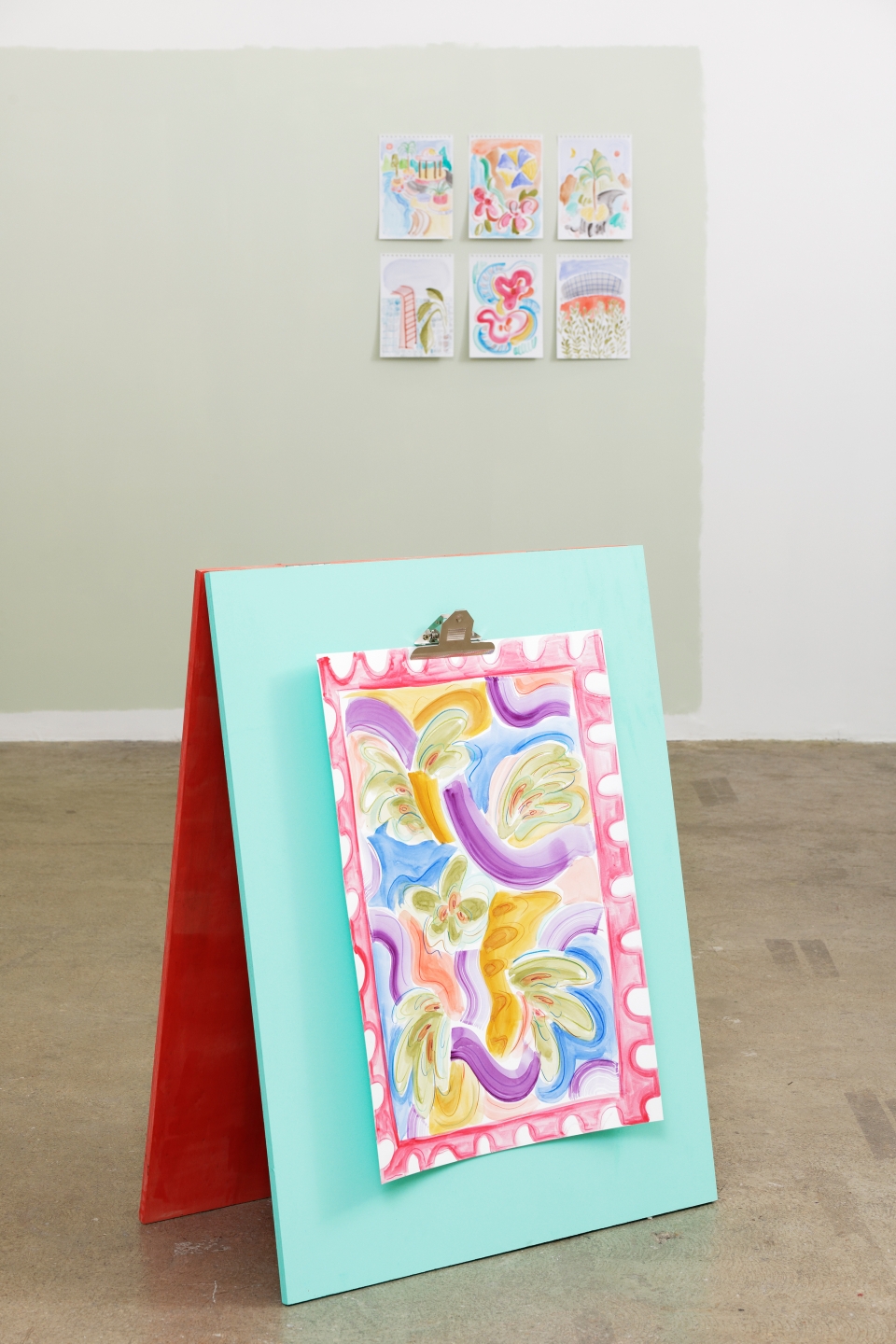
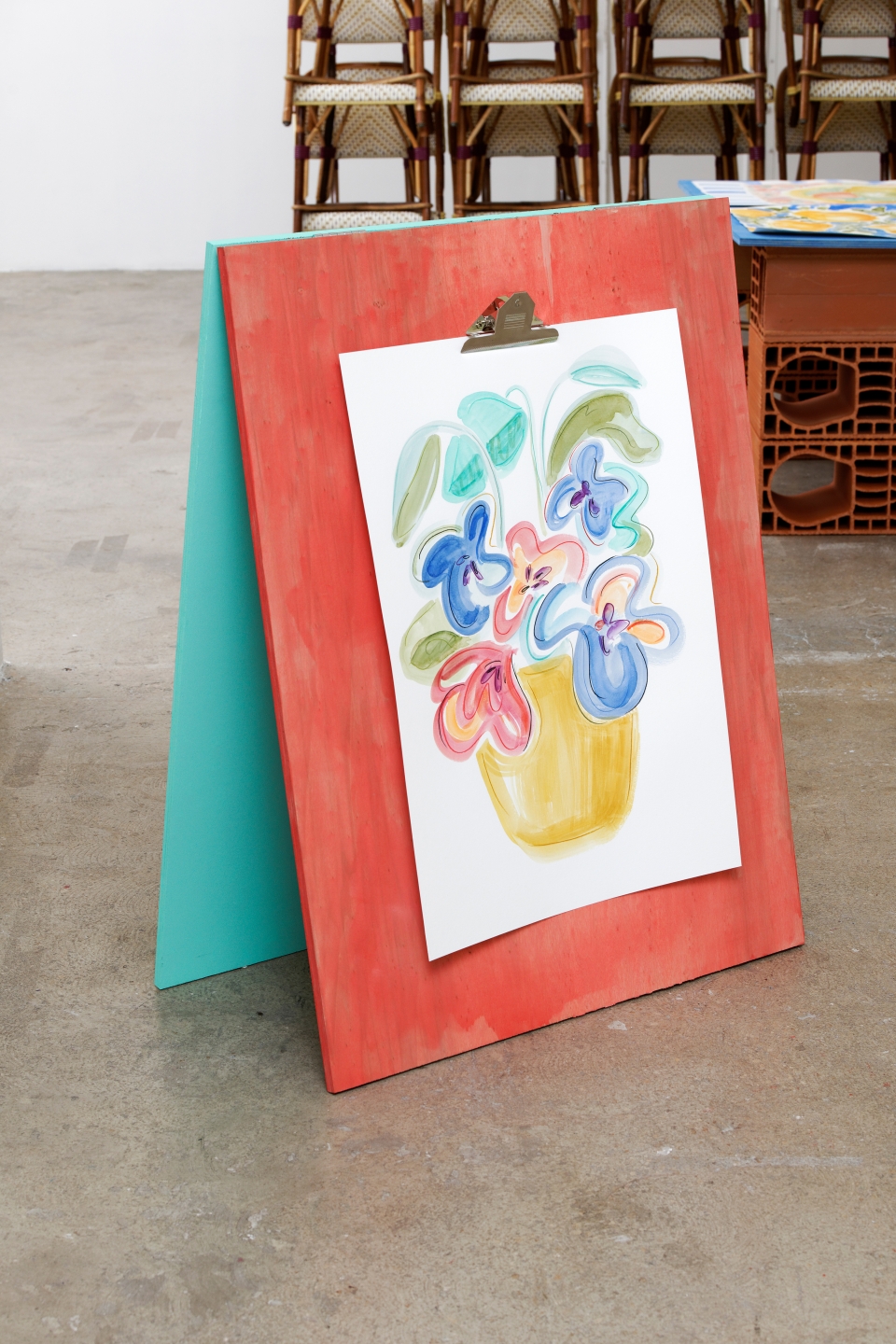
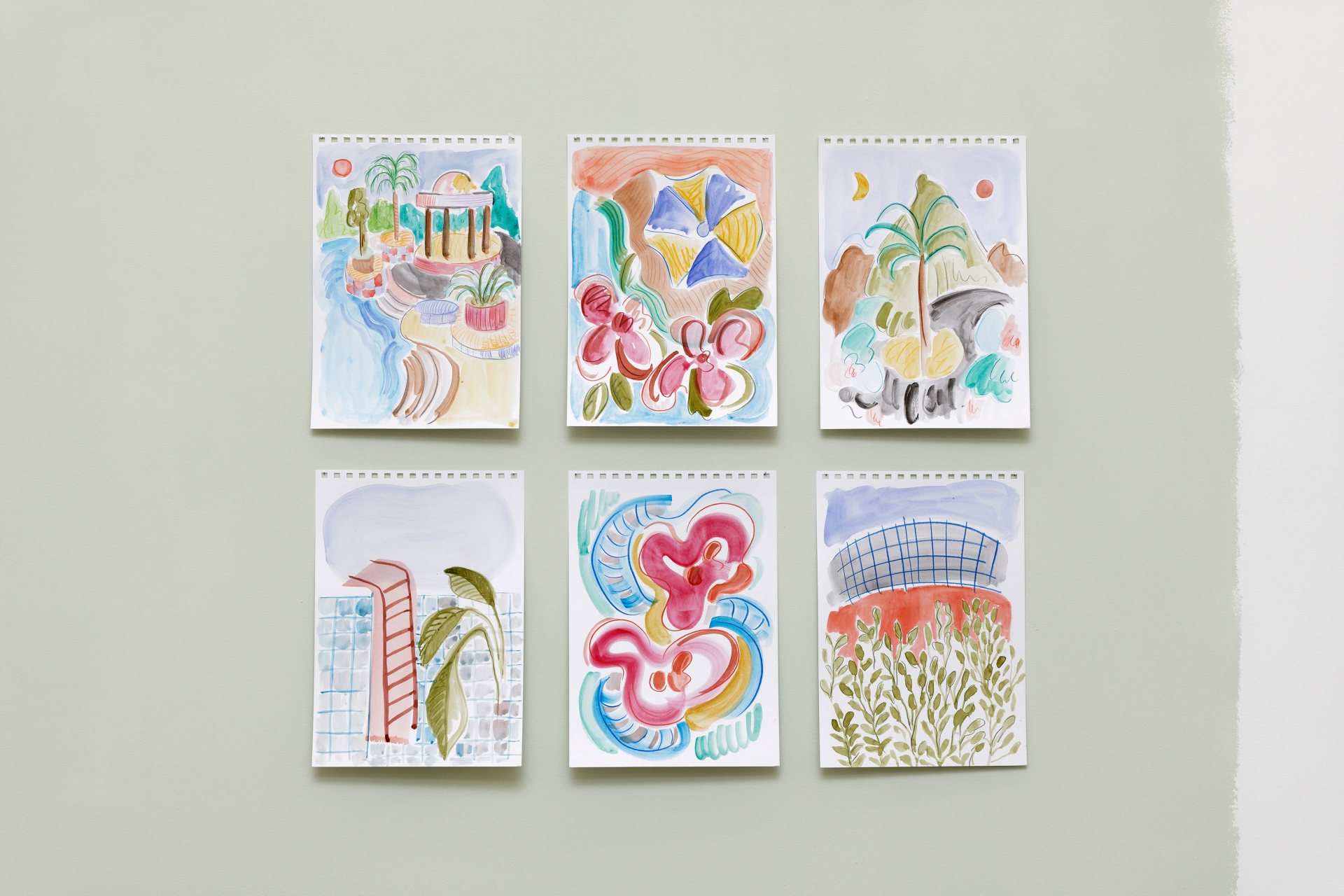
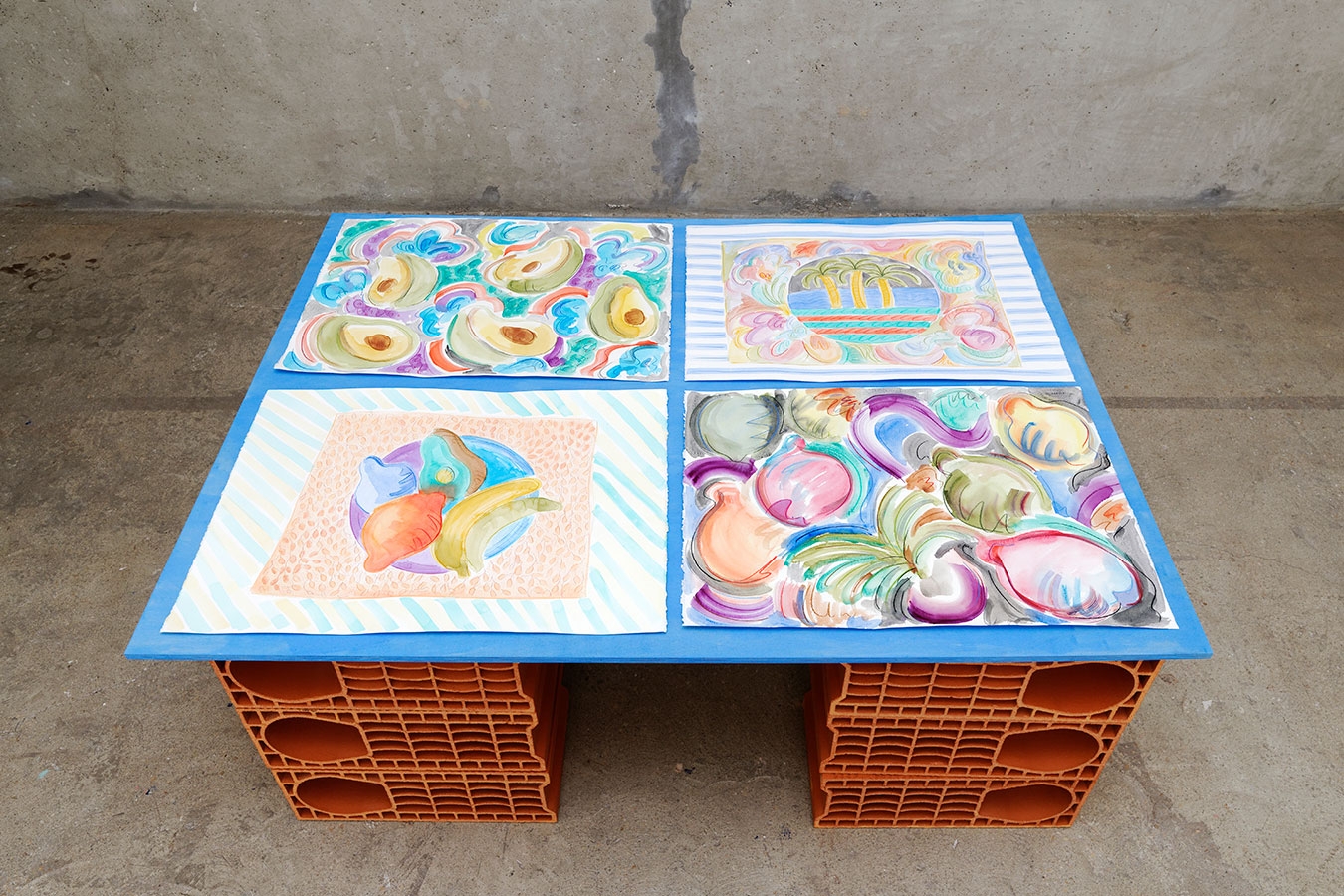
all pictures: © aurélien mole
PARIS — Cascades
9 rue des Cascades
75 020 Paris – France
from Tue. to Fri.: 10 a.m. to 6 p.m.
Sat.: 11 a.m. to 7 p.m.
and by appointment
PARIS — Beaune
5 & 7 rue de Beaune
75 007 Paris – France
from Tue. to Fri.: 10 a.m. to 6 p.m.
Sat.: 11 a.m. to 7 p.m.
and by appointment
Contact
PARIS — CASCADES: +33 (0)9 54 57 31 26
PARIS — BEAUNE: +33 (0)9 62 64 38 84
info@galeriecrevecoeur.com



